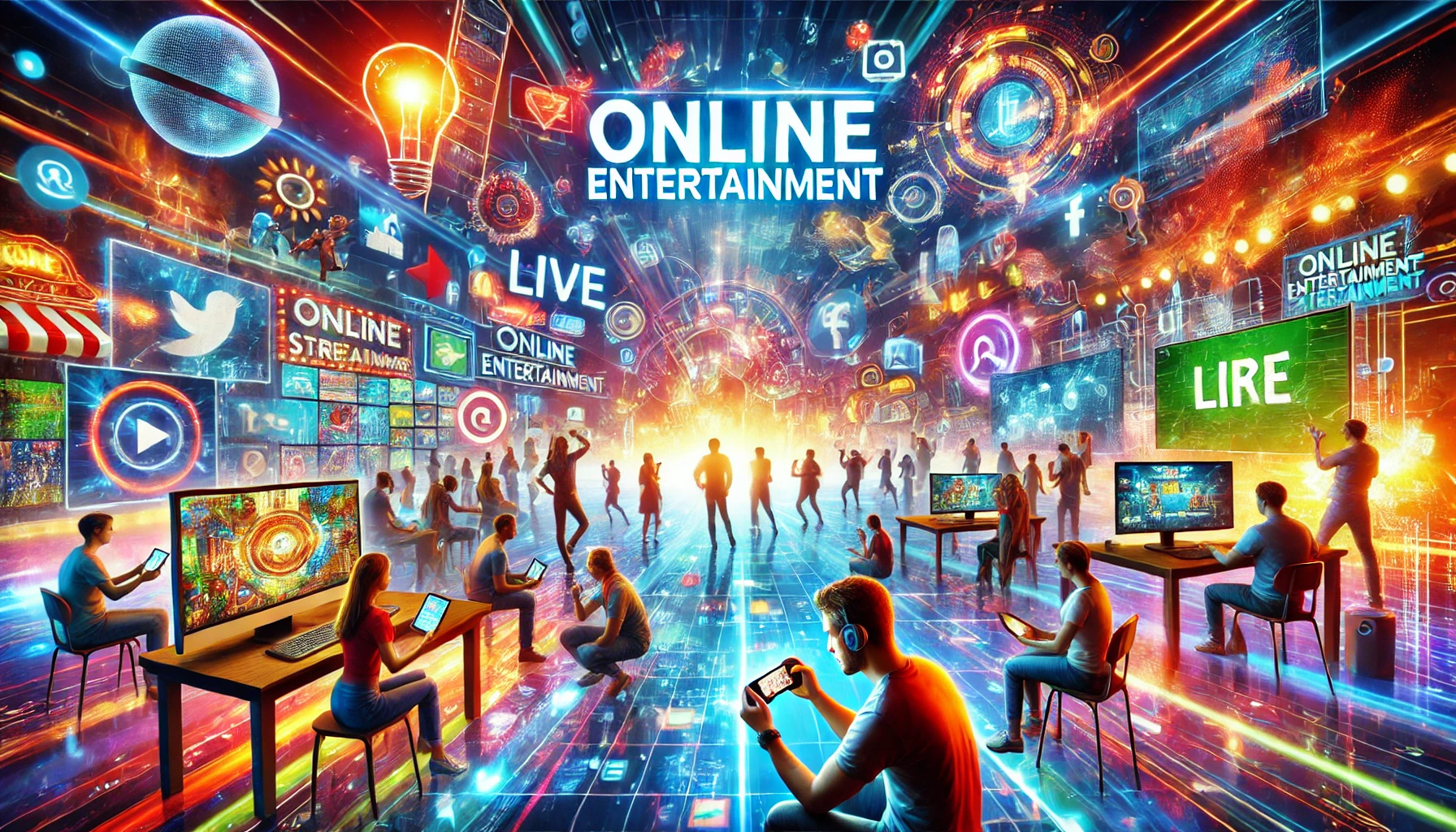Online entertainment has undergone a major shift in recent years, particularly since the global COVID-19 pandemic when all entertainment was within the home and largely online. People have continued to turn to digital platforms much more ever since and according to data from Statista, the digital media market is expected to have grown in revenue by 12.5% this year. One dominant area of online entertainment that’s a part of this growth is online gambling. Platforms offering real-money games are prevalent and technologies make them more immersive and thrilling than ever before.
Improved Digital Payment Options for Online Entertainment
Advancements in digital payments like encryption, two-factor authentication, and biometric verification have significantly improved online transaction security. This has built user trust and made platforms like online casinos much safer, further encouraging more people to join in. According to a report by Allied Market Research, the global digital payment market size is projected to reach $457.8 trillion by 2032.
Today, a wide range of payment options support transactions on online entertainment platforms. Users can choose from e-wallets (like PayPal and Skrill), mobile wallets (Apple Pay, Google Pay), prepaid cards, bank transfers, and in some cases outside the U.S., even cryptocurrencies. This diversity means improved accessibility for users, regardless of their preferred transaction method. Real-money gaming depends on this reliability and flexibility as it allows players to deposit and withdraw funds seamlessly. For example, online casinos for real money rely on secure, instant payment solutions.
Which Tech Developments Are Impacting Online Entertainment?
Though many consumers enjoy the advancements in emerging technologies and what they bring to the table, lots don’t look beyond the offering to the technology that’s bringing it forward. Which technologies are having the biggest impact on online entertainment and how are they doing it?
Blockchain technology—it’s not just for cryptocurrency
Blockchain technology is known for its transparency and secure transactions. This means information is stored securely in a decentralized digital ledger. The way it is stored across a network of computers means it is immutable and resistant to tampering. Every “block” holds data and the blocks are linked chronologically in a “chain.”
Blockchains hold different types of data but the most common is transactional. As it is “decentralized”, it means that no single entity, group, or person controls it. Rather, all users retain control collectively.
It has already impacted many industries worldwide and while cryptocurrencies like Bitcoin aren’t widely accepted, demand for this option is growing.
Artificial Intelligence (AI), Virtual Reality (VR) and Augmented Reality (AR)
Artificial intelligence is changing our experiences of online entertainment. Already, online streaming services like Netflix and Spotify analyze what we consume and offer suggestions based on this. Netflix uses advanced machine learning algorithms to produce its suggestions, considering things like what you’ve watched before, how long you spent watching them, whether or not you finished watching them, and what ratings you’ve given them. The suggestions are then calculated by comparing them with similar users. The more you use Netflix, the more accurate the suggestions will be. Spotify works in a similar way.
AI customer service is also improving. AI chatbots are now common and mean services can offer 24/7 support to users with instant responses. In online entertainment and social media, AI is also used to moderate content and identify harmful or inappropriate content so that the user experience is positive and safe.
When we add AI to technologies like virtual reality (VR) and augmented reality (AR), the possibilities are endless. Entertainment becomes personalized and immersive. In gaming, players can engage with AI-generated characters in realistic, social interactions.
What’s Next? Final Thoughts
The very near future will likely see a convergence of all current technologies: blockchain, AI, VR, AR, 5G, cloud computing, etc. As technology matures and advances, so too will CCC. AI will continuously learn from individuals and their preferences to adjust games, content, and virtual interactions in real time. As for VR and AR, imagine attending live concerts from home or participating in social interactions that feel genuine. The future of online entertainment will break traditional boundaries and blend digital and physical realities together with the only limits being imagination.







